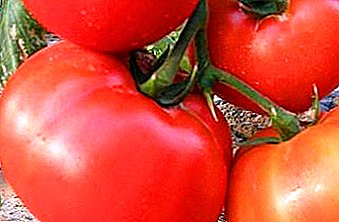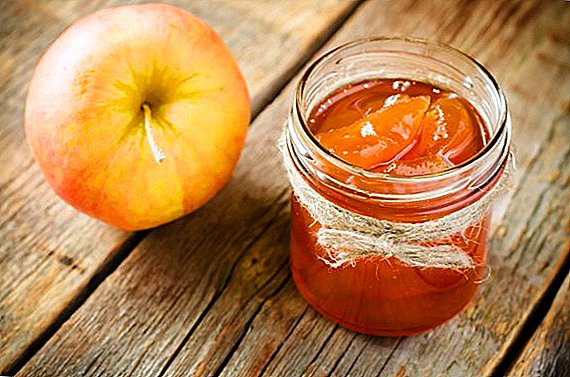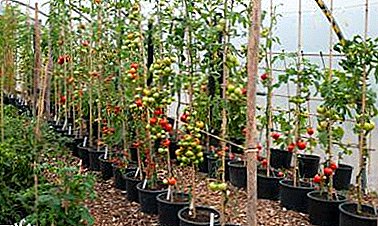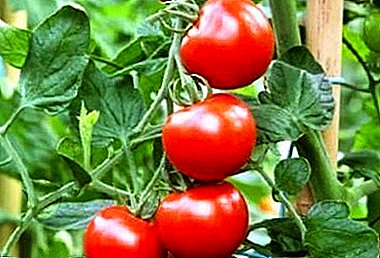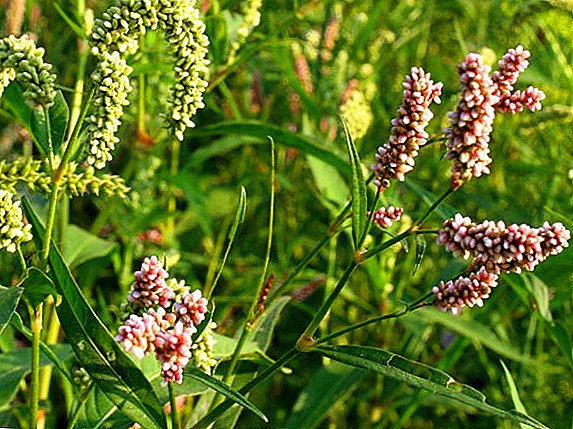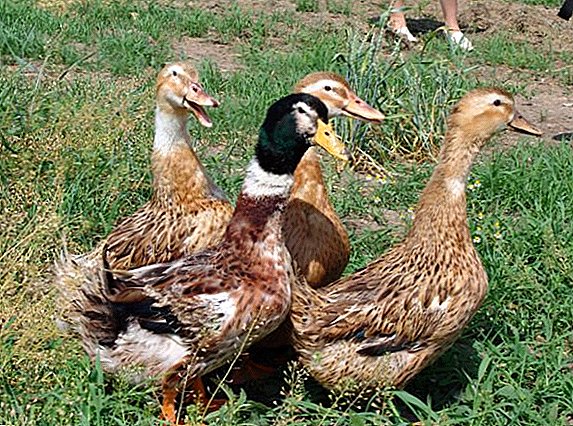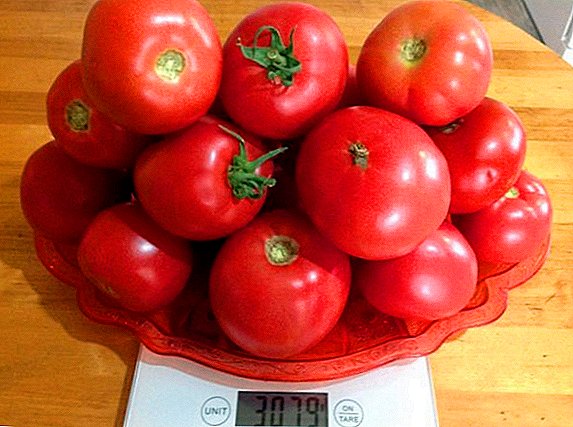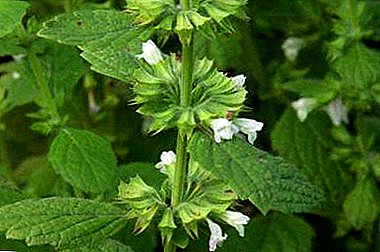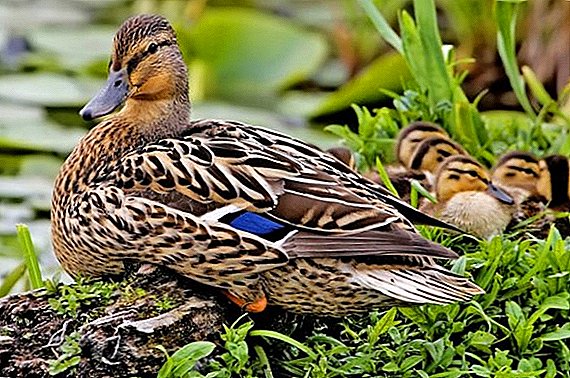 Both meat and ornamental breeds of rabbits require considerable attention, because this is the only way they can stay healthy and please their owners every day. The first and most important rule - good food eared pets with the most balanced daily diet. Let's find out what these animals love, and the better not to feed them, in order to avoid disease.
Both meat and ornamental breeds of rabbits require considerable attention, because this is the only way they can stay healthy and please their owners every day. The first and most important rule - good food eared pets with the most balanced daily diet. Let's find out what these animals love, and the better not to feed them, in order to avoid disease.
What can not feed the rabbits
Inexperienced breeders often give animals almost all the products that are only available in their home. However, there is a whole group of so-called prohibited foods, which are desirable to avoid even in small doses. Consider the main types of such food and the possible harm from it.
Poisonous plants and herbs
Not all growing herbs will be equally beneficial for eared ones. Many of them are generally considered poisonous, which means that they can not only contribute to the breakdown of the rabbit's digestive system, but also lead to death.
Learn in detail what you can not feed the rabbits.
First of all, such plants include such plants:
- wild rosemary;
- bird cherry;
- daphne;
- dope
- spurge;
- hellebore;
- digitalis;
- buckthorn.

All of them in one degree or another have a negative effect on the organism of the animal, most often causing diarrhea and bloating. Depending on the level of toxicity and the number of eaten parts of the plant can be fatal.
Did you know? The longest officially registered ears became the owner of the rabbit from the state of Kansas, which fell into the Guinness Book of Records in 2003. The length of this part of the body at the time of measurement was almost 80 cm.
Cabbage stalks
Cabbage leaves - not very useful, but acceptable product in the diet of rabbits. Their use is often resorted to in winter, when there is little other greenery left at home.
However, the stalk remaining after eating the leaves should be immediately removed from the cells, since this part is characterized by the highest concentration of harmful substances (especially if the cabbage was treated with any toxic chemicals during growth).
The scale of the harm is difficult to predict: at least the animals will have a problem with digestion, and they may refuse to eat. 
Potatoes
Potatoes are successfully used by many farmers when feeding rabbits, as the vegetable contains a large amount of useful starch - an excellent source of energy. However, if the animals lead a sedentary lifestyle, this component will quickly turn into fat, causing further heart problems.
Important! Permissible rate of issue of raw potatoes is not more than 150 g per rabbit per day.In addition, green and sprouted potatoes containing a large amount of solanine will be dangerous for the animals. This poison can kill them in just a few hours, especially when consuming a large amount of such food.

Sunflower seeds
Sunflower seeds can harm the rabbits only if they are given out uncontrollably. They contain a large amount of fat and, in general, can impede digestive processes by clogging the stomach of the animal.
Learn how to feed a decorative rabbit.
However, in moderation from time to time they can still be given, at least there are many examples of their successful use in the diet of eared pets. 
Chocolate
Virtually any sweets and especially chocolate are taboo for rabbits. They do not contain anything useful for them, but the preservatives and other chemical compounds present in the composition of such products may well provoke an allergic reaction or even serious intoxication of the body, as well as cause serious harm to the animal's heart.
The nuts
Nuts have a negative effect on the liver of rabbits and can cause severe poisoning of the animal, accompanied by vomiting, nausea, problems in the work of the heart and gall bladder.
Important! In a small amount of walnut leaves will be useful to the rabbits, as they are characterized by good tonic properties.This is especially true for almond and nutmeg varieties, while walnuts are not so dangerous, although they are also undesirable in the diet of eared pets.

Milk
Dairy products are a good source of protein, but only an animal that rabbits do not need. It should be replaced by vegetable analogue, contained in sufficient quantity in dried yellow peas and barley.
Milk, regardless of the dose used, will lead to diarrhea and bloating of the animal, and in some cases prolonged indigestion and refusal of water leads to rapid dehydration and death of the animal.
Find out if rabbits can be given beets, powdered milk, zucchini, pumpkin, peas, corn, dill, sprigs of cherries, fish oil, burdocks, wormwood, nettles, bran, cereals, bread.
Meat
As you know, rabbits are herbivores and do not feel the need for meat. Moreover, the introduction of this product into their diet can cause digestive problems, heaviness in the stomach and bloating. 
Tomato and Potatoes
Potato and tomato tops are a very dangerous kind of greenery for rabbits, because it contains a large amount of such a toxic substance as solanine.
Did you know? In the rabbit world there are long-livers. Thus, the Australian rabbit, who died at the age of 18 years and 10 months, became the oldest officially registered representative.
It is dangerous not only for the digestive, but also for the nervous system of eared pets, therefore it should be completely excluded from the diet.
Its presence in the body causes severe poisoning, including the death of animals.

Conditionally allowed types of feed
Given the relative simplicity of rabbits to feed mixtures and vegetation, it is not surprising that they can eat almost anything that grows in the garden. Unfortunately, not all cultures will be equally useful, therefore, introducing them into the diet of animals is better dosed, observing precautions. The conditionally permitted food products include the following groups.
Find out how and what to feed a nursing bunny after a dog.
Vegetables
As you know, rabbits are very fond of vegetables, but some of them should be introduced into the diet in limited quantities. First of all it concerns:
- tomatoes;
- cucumbers;
- onions;
- cabbage;
- dining beets;
- radish;
- eggplants.

The uncontrolled issuance of any of the listed products can trigger the development of intestinal dysbiosis and, as a result, the disruption of the entire digestive system.
Find out in detail what vegetables and fruits should be given to rabbits.
Fruits
Of this group, fresh or dried apples and pears are particularly relevant, but only without pits. In addition, store-bought dried fruits are conditionally permitted products, but they can be given in small portions.
To prolong the shelf life, such food is often treated with sulfur. Of course, having eaten it, your pets will not die, but they will receive no benefit either. As for completely forbidden fruits, this category includes avocados, oranges, mangoes and figs. 
Cereals
Normally, cereals should be present in the eared diet, but some of them can significantly increase the accumulation of mucus in the digestive system. This is not desirable, as it can lead to problems with the health of rabbits. The main such varieties should include:
- rice;
- rye;
- millet;
- millet.
Also avoid cereals with a very hard texture and a high content of insoluble fiber.
Learn how to feed a rabbit without a rabbit.
Legumes
Many beans can cause excessive gas and bloating, thereby worsening the general condition of the animal. For this reason, with particular caution should be taken to the issuance of green peas, black and red beans, ready-made porridge and pea puree. If possible, it is desirable to eliminate such food from the diet altogether.

Feed
Rabbits eat perfectly feed mixtures, and it doesn’t matter to them for which group of animals they are intended by the manufacturer. Therefore, some breeders readily feed them with food for pigs or cattle. Of course, this can not be done, because if the nutrition of the first can still be eared, then in the feed for cattle there are a lot of salts that will not benefit.
Check out rabbit feeding technology.Poultry mixes are completely banned and cannot be used to feed rabbits even in limited quantities. This can be explained by the presence of crushed shells and small pebbles in them, which are very dangerous for the stomach of animals.
Berries
Watermelons and some other berries, which are a good source of vitamins and trace elements, can be included in the diet of rabbits. This is a good supplement to the basic diet, especially if you give it in small doses (many varieties lead to excessive gas formation).  From the berries growing in our latitudes, eared berries give out several pieces of strawberries, currants, gooseberries, raspberries, blueberries, grapes, cranberries, sea buckthorn. With the advent of winter, they are introduced into the diet in frozen or dried form. Many of these berries contain useful vitamins of group B, as well as A and C, which help strengthen the immune system and increase appetite.
From the berries growing in our latitudes, eared berries give out several pieces of strawberries, currants, gooseberries, raspberries, blueberries, grapes, cranberries, sea buckthorn. With the advent of winter, they are introduced into the diet in frozen or dried form. Many of these berries contain useful vitamins of group B, as well as A and C, which help strengthen the immune system and increase appetite.
For variety, you can add to the diet and chop the leaves of these plants, previously slightly podvyali them.
Important! Berries, falling to the bottom of the cell, very quickly begin to rot, becoming the cause of the development of pathogens. We must try to prevent it in all possible ways so that the rabbit does not eat such a berry and does not get indigestion.
What can feed the rabbits
Here we come to the most important food group - the best food for feeding rabbits. It includes green, coarse, juicy and concentrated feed, which must be present in a certain amount in the diet of animals. 
Green feed
This group includes wild and cultivated herbs, in particular, beans, cereals and leaves of some garden plants. They are the basis of the summer eared ration from mid-spring to mid-autumn.
In the situation of choice, preference should be given to vetch, sweet lupine, forage clover, corn, alfalfa, young green oats and barley. The composition of the feed mixtures can include beans and cereals, but in its pure form it is better not to give them out, so as not to provoke flatulence.
Find out why rabbits grow poorly and do not gain weight.
Roughage
Coarse foods are commonly understood as vegetable foods rich in fiber. When feeding rabbits, special attention should be paid to high-quality hay, branch feed made from hay and various herbs flour.
Not less than 25% of the total diet of rabbits should be allocated to this group of feed mixtures, because thanks to the mentioned fiber, they quickly have a feeling of satiety with the most comfortable digestive processes. 
For each adult individual for the winter, it is necessary to harvest at least 40 kg of hay, and if it is planned to raise the crop, then another 10-15 kg should be added to this value. If there is a shortage of this product, it will be necessary to transfer the main herd to oatmeal, lentil, pea and millet straw, and distribute the remains of hay between young individuals and feeding rabbits.
Learn how to feed rabbits with vegetal feed.
Succulent feed
Juicy feeds include vegetable products that contain a lot of water (at least 65% of the total). These can be root and tuber crops, vegetables, silage, and even food industry waste. In addition to the liquid, they also contain proteins, fats, fiber, and easily digestible vitamins. The most popular varieties of succulent feed include:
- potatoes, and more specifically, mashed potatoes with an admixture of bran and feed mixtures;

- cabbage rich in minerals and vitamins (capable of improving the appearance of wool, but with an excess amount leads to excessive gas formation, so do not abuse it);

- carrots with significant reserves of carotene and vitamins of group B (when raw, a root vegetable should be well washed and, if necessary, cut into small pieces, 3-4 cm each);

- pumpkin, which, like the previous options, allows you to well saturate the animal, at the same time improving the digestive processes and the appearance of wool cover (can be issued both in cheese and in boiled form - the latter will be especially useful for small rabbits);

- turnips, melons, radishes and turnips, although they do not have a high nutritional value, but can be used to diversify the diet.

Did you know? Representatives of the Little Idaho breed (pygmy rabbits) are reasonably considered the smallest rabbits in the world. An adult can weigh a maximum of 450 g with a body length between 22-35 cm.
Concentrated feed
This type of food has a very high nutritional value with a small amount of fiber and water. The composition of the finished mixtures include soybeans, beans, lentils, corn, oats, and wastes of industrial crops (for example, cake, cakes, etc.), and bone, blood and fish meal can be used as useful additives.
Concentrated feed mixtures can take up to 30-40% of the total diet of rabbits, since their presence contributes to the good growth and development of animals, improving the lactation of lactating females.

No less important in this matter will be the method of issuing concentrated feed mixtures. So, for the highest quality assimilation of oats, corn and barley, it is better to give them in a ground form, sometimes with other concentrates.
Learn how to rid the rabbits of digestive problems: constipation, diarrhea, bloating.
Wheat bran is desirable to moisten, if necessary, mixing with succulent or green feed. As for the feed mixtures themselves, they are left in granular form, sometimes adding vitamins and drugs.
Cakes and meal should be best absorbed by the stomach of rabbits in steamed and pre-ground form, mixed with boiled potatoes whenever possible.
There are a lot of useful products for animals, so if you are not sure whether it is possible to give rabbits any little-known grass or food that is not intended for them, make a diet of proven ingredients, especially since most of them can be found in every farm.
What can not feed the rabbits: video
Reviews

When my husband and I had a livestock of about 300 heads, we were fed year-round granulated feed (bunker feeders for two three days backfilling) and hay, plus automatic drinkers. True, it was impossible to equip all the cells, in some there were just water jars. I had to run with a watering can and pour water by hand. Aspen, spruce and pine branches were added to the nursing and suckling females (needles only !!! in winter). Such feeding greatly simplifies and reduces the cost of maintenance.









